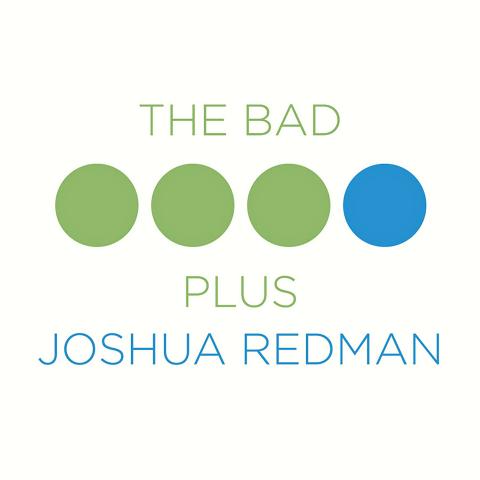RADIUS
Allen Stone
Capitol

Allen Stone insists that he is committed to vintage soul on his third album Radius. That means grainy, unvarnished singing, lyrics that promise honest sentiments, grooves built with physical instruments and a gospel-rooted determination to uplift. “Keep your dirt on the surface and just love where you’re at,” Stone advises in Where You’re At, with pop-gospel echoes of People Get Ready.
His models are obvious: Stevie Wonder above all, with glimmers of Al Green, Bill Withers, Curtis Mayfield, George Clinton, Prince and a bit of Sting. Despite his long-haired, floppy-hatted hippie look, Stone is a craftsman who leans retro. He’s defensive enough to sing about it in Fake Future, a brisk funk tune that demands “Chuck your laptops” and complains: “What good is my microphone if I don’t really sing?/What good is my music if it ain’t really me?”
That earnestness runs through Radius. Stone has soaked up ideas and inflections from his soul heroes, but rarely their humor. Stone’s new songs, despite the confidence in their melodies and vocals, worry over love, self-doubt and larger concerns. Titles like Perfect World, Love and Freedom are thoroughly sincere; he’s seeking all three. American Privilege begins with him singing, “Oh, it doesn’t seem right/that I was born white” and goes on to ponder materialism and all that he takes for granted.

His persona stays humble and conscientious. In Circle, which starts and ends with folky acoustic guitar, he sings about being trapped in hopelessness and fear. I Know That I Wasn’t Right has him crooning the title dozens of times, trying weak excuses before apologizing some more. Strings and falsetto don’t cushion the bitterness of Freezer Burn, where he’s a victim of temptation, while he returns to affection in Symmetrical, a sleek disco revival that couches amorousness in mathematical terms.
Stone’s old-fashioned grooves are a studio illusion. Most of the album was made with a Swedish songwriter and producer, Magnus Tingsek, overdubbing multiple instruments and vocals. And Stone doesn’t rule out the technology he distrusts. A handful of songs with other producers use programmed rhythm tracks with a mechanized feel. Guardian Angel verges on hip-hop, and the piano chords that start Freedom could easily be the intro to an electronic dance music single. Instead, the producer Benny Cassette programs a funk beat and adds a horn section, although that could change with a remix.
For now, Stone, 28, is keeping his distance from his own generation’s music, valuing human tones. But Radius hints that he’s not entirely content to remain a throwback.

— JON PARELES, NY TIMES NEWS SERVICE
II
Metz
Sub Pop
Much has been made of Metz’s loudness. This Toronto three-piece plays with weapons-grade intensity, making a mighty racket out of spare parts. But loudness doesn’t signify what it once did in rock.
The last decade, especially, has seen the broadening and mainstreaming of styles — twee, complex, artisanal — that remained in the shadows after Nirvana’s ascent to popular acclaim in the early 1990s. Loudness, once a sign of aggression or opposition, is now just a tactic, a necessary tool to fill rooms.
Mumford & Sons: loud. Arcade Fire: loud, too. But they’re just not — how do you say? — fun.
Metz is sloppy. Metz is acerbic. Metz is fun.
On its primally satisfying second album, II, it plays with punk attitude, hardcore discipline and construction-site volume. That all adds up to a glorious rumble, and a fetishistic one as well. Metz’s eruptions have everything to do with Nirvana’s pre-breakthrough dynamic.
The singer Alex Edkins, who also plays guitar, growls with confident anxiety. The rhythm section of Chris Slorach on bass and Hayden Menzies on drums is forceful, durable and surprisingly loose for a band this aggressive. Metz isn’t a taut outfit, but tautness isn’t the goal. Even similarly small bands with enormous sounds (say, Japandroids) excel at crispness. Metz colors outside the lines — obliterates them, really.
But albums are contained spaces, which means that as impressive as II is, it’s implicitly more orderly than Metz itself. Where this band truly thrives is onstage, where it can tumble and stumble freely.
— JON CARAMANICA, NY TIMES NEWS SERVICE
The Bad Plus Joshua Redman
The Bad Plus and Joshua Redman
Nonesuch
The Bad Plus has been a steady-working band for 15 years, and at no point during that time has it sounded incomplete. An acoustic trio with a collectivist heart — made up of Ethan Iverson on piano, Reid Anderson on bass and David King on drums — it holds fast to the idea of a group identity, essential and inviolable, no substitutions allowed.
Still, there have been a few allowances for guests, like the guitarists Kurt Rosenwinkel and Bill Frisell. Now comes a full album jointly credited to the tenor saxophonist Joshua Redman, as on a recent tour (and a forthcoming one, which kicks off on June 10). As a chemistry experiment, the album is a knockout.
Which, on the one hand, should be no surprise: Redman, like the members of the Bad Plus, is a Generation X musician who regards his jazz erudition more as a means than as an end. But his coolly rational style, and the dry restraint in his tone, can suggest a stark contrast to the band’s more florid, exclamatory mode.
So it is impressive how much vital presence he brings to the Bad Plus without altering the band’s dynamic. There’s limited precedent for this in jazz: say, the album Oscar Peterson Trio + One, with the trumpeter Clark Terry, although the common dialect in that case was clearer. When Redman attacks a squirrelly tune like County Seat, by Iverson, he’s on terra incognita, stretching out in exciting ways.
One of Redman’s two originals, The Mending, feels tailored to the heroic Bad Plus metabolism; the other, Friend or Foe, evokes his work with the pianist Brad Mehldau.
Elsewhere, on tunes by Anderson and King, Redman functions more like the lead singer in a rock band than the frontman in a jazz quartet. His playing on Lack the Faith but Not the Wine, a ballad, conveys a heartache directly proportional to its muted calm.
And while he’s basically plugging into a matrix on Dirty Blonde, a vintage anthem by Anderson, his engagement with Silence Is the Question, which has the same pedigree, activates something headlong and ecstatic within the band. Beginning in a hush and slowly building to a roar, it’s the album’s closing track, for good reason: By the all-important metric of group cohesion, it couldn’t be any more convincing.
— NATE CHINEN, NY TIMES NEWS SERVICE

June 9 to June 15 A photo of two men riding trendy high-wheel Penny-Farthing bicycles past a Qing Dynasty gate aptly captures the essence of Taipei in 1897 — a newly colonized city on the cusp of great change. The Japanese began making significant modifications to the cityscape in 1899, tearing down Qing-era structures, widening boulevards and installing Western-style infrastructure and buildings. The photographer, Minosuke Imamura, only spent a year in Taiwan as a cartographer for the governor-general’s office, but he left behind a treasure trove of 130 images showing life at the onset of Japanese rule, spanning July 1897 to

One of the most important gripes that Taiwanese have about the Democratic Progressive Party (DPP) is that it has failed to deliver concretely on higher wages, housing prices and other bread-and-butter issues. The parallel complaint is that the DPP cares only about glamor issues, such as removing markers of Chinese Nationalist Party (KMT) colonialism by renaming them, or what the KMT codes as “de-Sinification.” Once again, as a critical election looms, the DPP is presenting evidence for that charge. The KMT was quick to jump on the recent proposal of the Ministry of the Interior (MOI) to rename roads that symbolize

On the evening of June 1, Control Yuan Secretary-General Lee Chun-yi (李俊俋) apologized and resigned in disgrace. His crime was instructing his driver to use a Control Yuan vehicle to transport his dog to a pet grooming salon. The Control Yuan is the government branch that investigates, audits and impeaches government officials for, among other things, misuse of government funds, so his misuse of a government vehicle was highly inappropriate. If this story were told to anyone living in the golden era of swaggering gangsters, flashy nouveau riche businessmen, and corrupt “black gold” politics of the 1980s and 1990s, they would have laughed.

In an interview posted online by United Daily News (UDN) on May 26, current Chinese Nationalist Party (KMT) Chairman Eric Chu (朱立倫) was asked about Taichung Mayor Lu Shiow-yen (盧秀燕) replacing him as party chair. Though not yet officially running, by the customs of Taiwan politics, Lu has been signalling she is both running for party chair and to be the party’s 2028 presidential candidate. She told an international media outlet that she was considering a run. She also gave a speech in Keelung on national priorities and foreign affairs. For details, see the May 23 edition of this column,